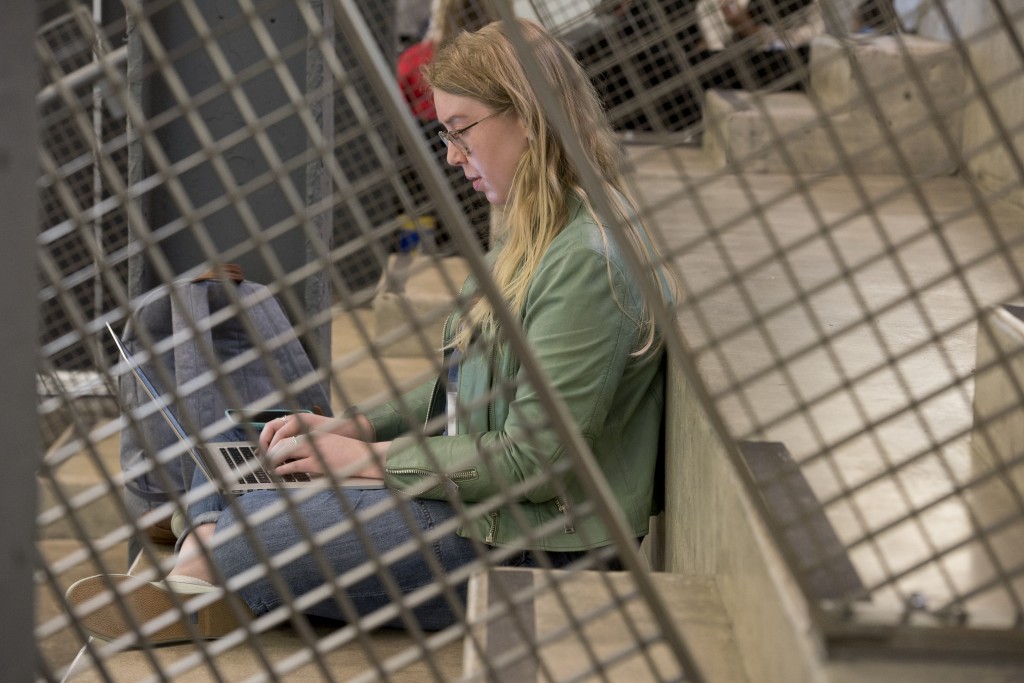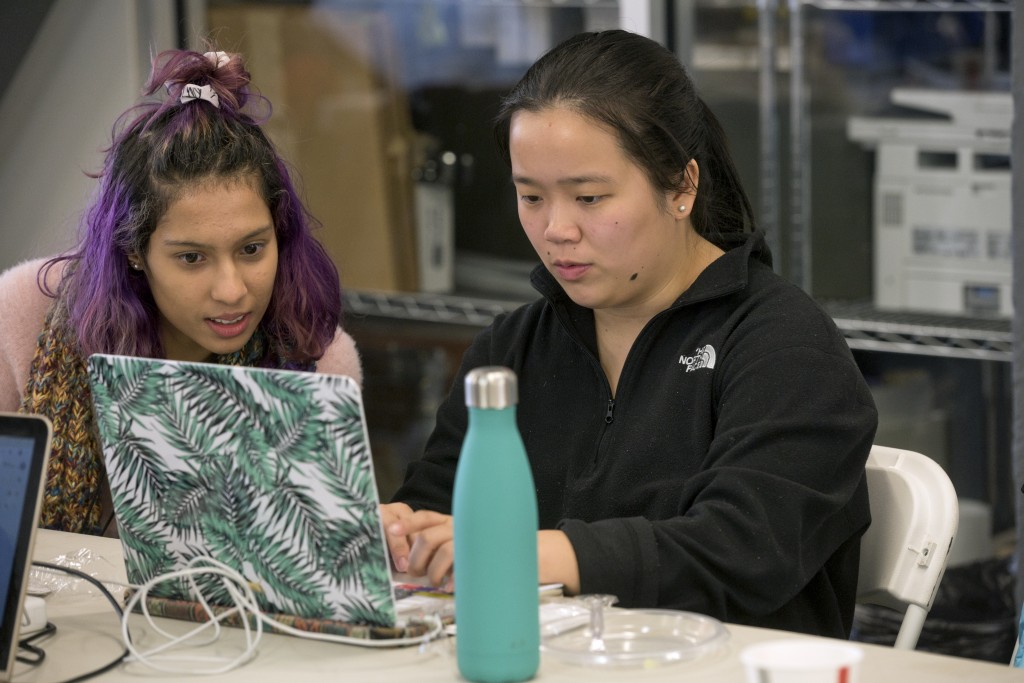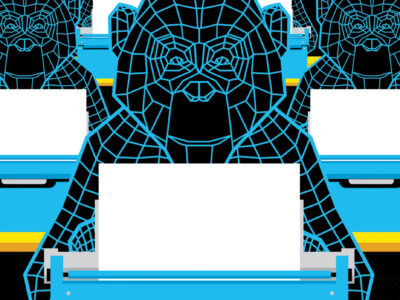The first thing someone might have noticed walking into the Pennovation Center on February 9th wouldn’t have been that the room was packed wall-to-wall with women attending this year’s FemmeHacks, Philadelphia’s first all-female collegiate hackathon. Instead, perhaps, they’d have recognized a calm air—a characteristic more closely associated with a lazy Saturday morning than a hackathon.
This was intentional. According to the event’s organizers, FemmeHacks aims to depart from stressful, weekend-long hackathons. While the perfect hackathon can catalyze creativity and self-expression through collaborative technological problem-solving, some experts maintain that the competitive nature of many hackathons generates too much stress, with a reliance on junk food and little real innovation.
FemmeHacks strives to perfect the hackathon. Founded in 2015 by Andrea Baric EAS’18, then a student at Drexel, to help fill a void for women, minorities, or really anyone who might lack the confidence of Harvard-era Mark Zuckerberg, the event is now hosted by Penn’s Women in Computer Science (WiCS) and takes place at the Pennovation Center, the University’s innovation hub and start-up business incubator. At FemmeHacks, the hacker experience takes center stage—not the hacks. Hackers from all different backgrounds and skill levels are free to attend approachable workshops on anything from iOS coding to resume writing, have one-on-one chats with female mentors in STEM (science, technology, engineering and mathematics) fields, or do something entirely unrelated to coding, like make a friendship bracelet.
Ultimately, the point of FemmeHacks isn’t to create the next GroupMe or “Like” button but to create camaraderie amongst participants. “I was on the participant experience committee my freshman year, helping to plan out the workshops that we offer, and I just thought it was an amazing experience,” says Sneha Advani C’20 EAS’20, the current director of FemmeHacks. “I met so many amazing women in tech and found it so inspiring to see all the company mentors and Penn mentors in computer science who are out there doing really amazing things. So that’s why I wanted to continue working with FemmeHacks.”

At the 2019 conference, camaraderie certainly filled the space. And it was quite active, too. Thanks in part to its affiliation with WiCS—which aims to support and improve the female computer science experience—as well as Penn’s network of alumni and faculty, FemmeHacks has grown from just 30 hackers in 2015 to about 250 in 2019. “Everyone—from [Penn Engineering dean Vijay Kumar] to faculty to upperclass students—has moved this forward with financial support, and most importantly, their own support in the ways they love to teach computer science and hacking to the broadest range of students,” says Penn President Amy Gutmann, who attended the event and spoke with young programmers.
Despite the University’s mentorship, FemmeHacks is fueled by Penn students and other participants. Nearly every staffer, from the current director to the freshman logistical staff—many of whom attended this conference in high school—return year after year. And although it appeals to a relatively niche audience of women with an interest or involvement in computer science, FemmeHacks teemed with diversity. High school students huddled in corners to create websites that destigmatized mental health issues. College students designed a smarter fitness tracking app, an interface inspiring environmental mindfulness, and a “choose your own” adventure game meant to teach young women entrepreneurial skills—all of which were among this year’s winning submissions. And graduate students chatted with mentors about the contours of the tech industry—and how to succeed without sacrificing their femininity.
While Becky Norling-Ruggles—a Swarthmore student who designed a website to streamline the college application process—believes “it’s just the general camaraderie of women coding that puts a positive mood in the air,” others attribute FemmeHacks’ success to its strong focus on collaboration and openness. And that kind of energy is something they hope can infiltrate the corporate culture of tech giants, so women can begin to feel more welcome in a field still dominated by men.
“People here will explain what they’re doing, how they’re doing it, and they’ll help you if you need help,” says Morgan McLees EAS’22, a member of FemmeHacks’ logistics team. “I feel like sometimes people think STEM is too big or hard to tackle, so this definitely shows that coding is something everyone can do.” —Beatrice Forman C’22





